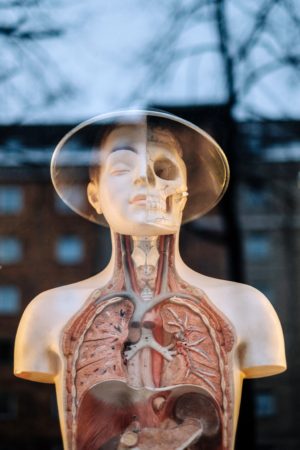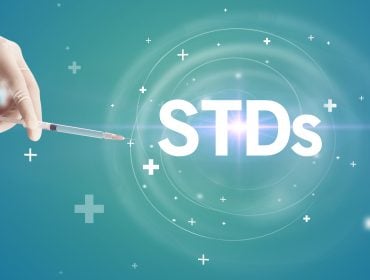Where To Get STD Testing?
These days there are various types of facilities that offer sexually transmitted disease (STD) testing. Each type of testing center comes with its own pros and cons. We put together this list that walks you through the different places that offer STD testing so you can make the most informed decision about your sexual health. For example, doctor’s offices are a common place to get tested for STDs, but this is frequently the most expensive option because some insurance companies do not fully cover STD testing, and doctor’s offices may include additional fees.
Where To Get STD Tested:
Regular testing for STDs is recommended for all sexually active people. In today’s medical industry, there are many methods to get tested for STDs. Choosing where to get tested for STDs can be a complicated decision that hinges on a number of factors, from concerns about confidentiality or the speed if the results to the proximity of testing locations. Here we answer the important question of where you can get tested for STDs.
Doctors Office/Clinics
While there are ways to take an STD test without seeing a doctor, most STD testing still takes place in a private physician’s office setting. Many physicians don’t handle sexual health issues specifically, so it is possible to have limited access to testing or treatment options, depending on the doctor. There can be advantages to getting tested in a physician’s office, such as ensuring that any treatments prescribed for STDs don’t conflict with other necessary medications or treatments. In a physician’s office, blood work does not include STD testing by default. Whether an STD test is needed as a diagnostic to establish the cause of specific symptoms, confirm a suspected infection, trace the origins of an infected person’s disease, or as part of pregnancy-related or general health maintenance, STD tests must be specifically requested.
In order to get tested for STDs in a physician’s office, patients answer questions about their medical history and sexual activities. In many cases, a physical exam is required, which may include a pelvic exam for females. A sample is collected, which could include any combination of a urine sample, blood sample taken by blood draw or finger prick, an oral, genital, or discharge swab, or tissue sample from sores or ulcers. If the doctor has to send the sample to a lab for testing, there is a waiting period before someone from the doctor’s office contacts the patient with their results and follow up recommendations. Sometimes, especially in the case of urine samples, a test can be conducted on the spot with results given in the same visit. Once results have been explained, a doctor can send a prescription to a pharmacy, if treatment with medication is needed, or schedule a treatment regimen. Follow up visits for additional STD testing to confirm that treatment is effective will also be required.
Getting tested for STDs in a doctor’s office typically includes more expenses than other testing options. Health insurance can cover all or a portion of the cost of STD testing in a physician’s office, but many health insurance policies don’t cover preventative screenings when there are no symptoms present. Doctors are also not always aware of more cutting-edge tests that are on the market. Using health insurance also includes the STD testing in the billing for the insurance policy, creating a permanent record of the testing. Getting tested in a physician’s office also ensures that the results of all STD tests will be placed on the patient’s permanent medical record.
Free or low-cost STD clinics operate in the same manner as a physician’s office, but STD clinics are staffed with doctors who specialize in sexually transmitted infections and their treatments. Typically, STD clinics offer more cutting-edge testing options, such as early detection tests or faster results, and provide a more comfortable environment for discussing sexual health issues. Testing outside of a general practitioner’s office also keeps a positive diagnosis separate from general health care, which may be important to patients who have seen the same physician for a long time. While many people feel there is a stigma attached to visiting an STD clinic, the affordability of free or low-cost STD testing often makes it the only viable option. The biggest disadvantage to testing at an STD clinic is usually the inconvenience of long wait times. Many STD clinics have a limited schedule for seeing patients.
Planned Parenthood

Planned Parenthood, known formally as Planned Parenthood Federation of America, is a non-profit organization that provides STD testing and a host of other sexual health and family planning services. Because Planned Parenthood provides approximately 300,000 abortions each year in less than 3 percent of its 668 nationwide clinics, the organization is often mired with controversy from onsite prayer, sidewalk counseling, and protesters demonstrating outside clinics. Defunding is directly impacted by federal legislation, which has become more stringent in the past decade, resulting in the closure of an average of 24 clinics per year since 2009, with 27 closures in 2014 alone. Despite legislative and pro-life campaigning against Planned Parenthood, the organization remains the largest provider of sexual and reproductive health care in the U.S. In addition to contraception services such as birth control and pregnancy tests, Planned Parenthood provides STD education and testing services, as well as other services like cancer screenings and general health care.
To get tested for STDs at Planned Parenthood, patients must visit a Planned Parenthood clinic location and request the STD test(s) they need. Typically, tests are offered individually, as opposed to in a comprehensive package. Most locations test for a variety of STDs, including gonorrhea and chlamydia, syphilis, genital warts, herpes, HIV, trichomoniasis, and other STDs upon request. The procedure at the Planned Parenthood clinic is similar to that of a doctor’s visit. Once tests are requested, information is collected about the medical and sexual history of the patient, a physical may be performed, and samples are collected, as necessary, to conduct each test.
Online STD Testing
Online STD testing is an innovation in sexual health care that began during the past decade. Online STD testing allows patients to purchase STD tests by visiting a website from a computer, tablet, or mobile phone and choosing a lab near you. It’s easy to find specific labs by simply searching your zip code or city. View an example of our Los Angeles Testing Page. Individual tests or comprehensive packages that test for multiple infections, can be purchased. These testing companies partner with major medical labs like LabCorp and Quest Diagnostics to offer safe, reliable testing at nationwide testing centers. In addition to the convenience and confidentiality of purchasing tests at any time from the comfort of your own home, some online STD testing services, like STDcheck.com (which is confidential and offers same-day testing) also allow patients to get physician support in the event of a positive STD diagnosis. Many of these services can have a doctor send a prescription for treatment to a local pharmacy, depending upon the diagnosis. The labs that partner with these testing services only require a small blood or urine sample, making the testing process quick and convenient while eliminating the need to have an awkward conversation about sex with a physician or nurse. The labs also test for a wide variety of conditions onsite, so there is none of the embarrassment or stigma that may be associated with visiting an STD clinic. Results are usually sent via email or are made available in an online account with a secure login. Many sites offer results within 1 to 3 business days .
.
At-Home Kits
There are only two FDA-approved at-home test kit for HIV: One of these is the OraQuick® In-Home HIV Test, available online at the OraSure website, Amazon, online pharmacies, and at pharmacies like Walgreens, CVS, Rite Aid, Kroger, and Walmart. OraQuick® is a rapid HIV test approved for in-home use that uses an oral swab to test a fluid sample from the upper and lower gums and provides a result in about 40 minutes. While the test is safe and convenient, it is not intended to be used without follow-up testing for confirmation of a positive or negative result. If the test is used within three months of infection, false negatives are likely. False positives are also a possibility, so every positive result should be confirmed with a blood or urine lab test.
In some states, services can send an at-home test kit that does not test a sample, but allows patients to send a sample to their lab for collection and testing. Results and guidance are then provided after testing. In California, Minnesota and Washington, Planned Parenthood offers this service. In Maryland, Washington D.C., West Virginia, Alaska, parts of Illinois, and the Denver and Philadelphia metro areas, the service is available through a site called ‘I Want The Kit’, which has a 43 percent return rate for at-home swabs and requires all patients to select a clinic where results will be faxed in the event of a positive result. While the mail-in option provides the convenience and privacy of online HIV testing services, factors such as how the sample is collected, stored, or handled can render the test ineffective. ![]()
Unlicensed brands of at-home STD or HIV tests are available, but are not FDA-approved or legal for resale in the U.S. Brands such as Nebula Laboratories, inSTIcheck, STDrapidtestkit, Advanced Quality, and iCare, as well as websites and even Facebook pages offering instant at-home test kits for everything from HIV to herpes are not FDA-approved and are not legal vendors. As such, any test kit that claims to offer instant results at home, other than the OraQuick In-Home HIV test, should be viewed with caution. Their accuracy has not been evaluated or approved by the FDA. To avoid falling victim to scams, such as pregnancy tests that have been repackaged as STD tests, always seek testing from sources that are FDA-approved and CLIA-certified.
Read Section 14 on How To Practice Safer Sex.
Medically Reviewed by J. Frank Martin JR., MD on February 5, 2024
Secure and Confidential
STD testing services
The fastest results possbile - available in 1 to 2 days

Tagged
Categorized As
Author: Kristena Ducre
Kristena is a sex-positive LGBTQ ally and general fan of sexy things. As a writer, she is passionate about empowering people's sex lives with accurate and straightforward information. Sex can be a ton of fun, but sexual health is not a laughing matter. In the bedroom, as in life, knowledge is power.




